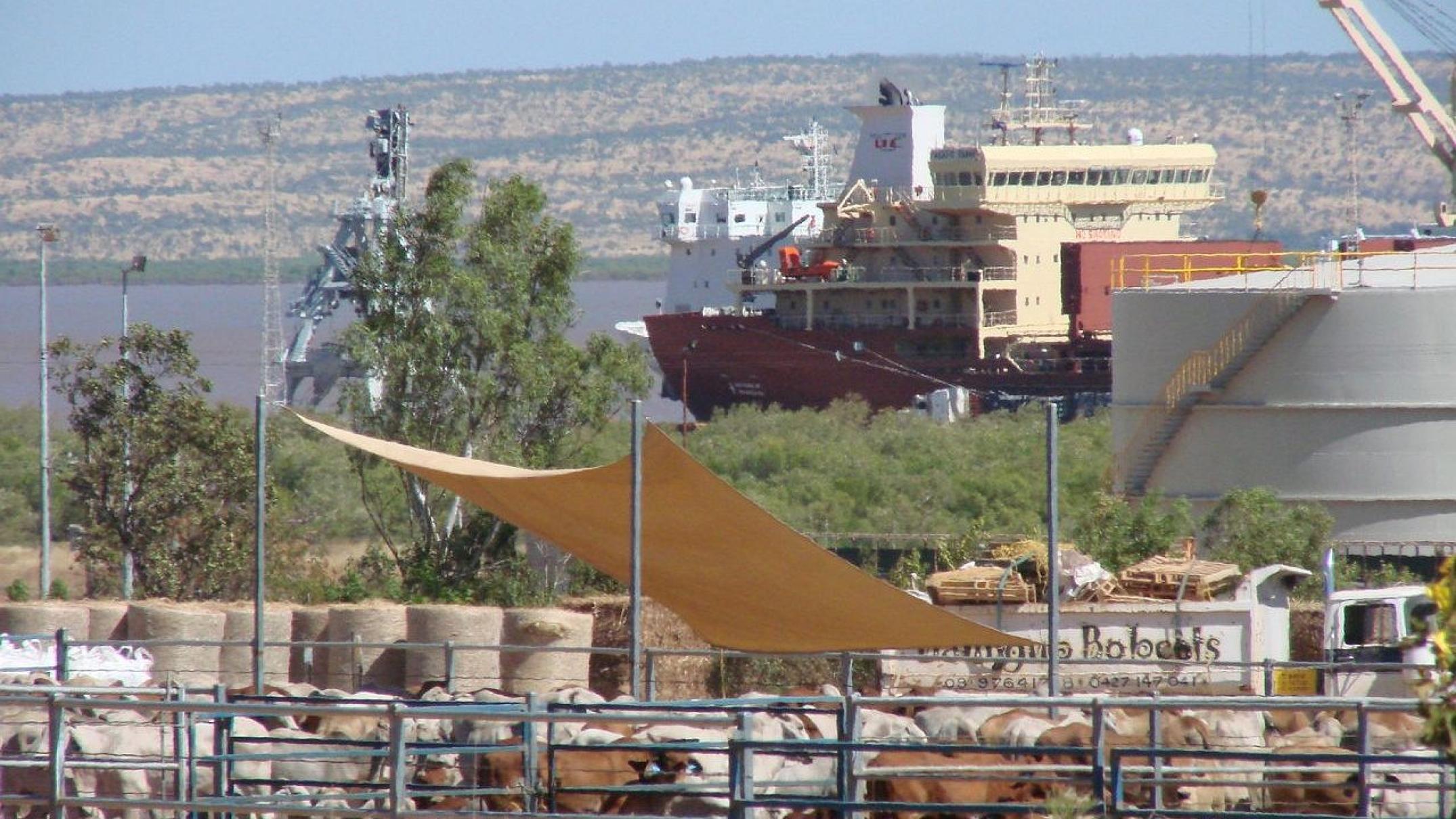The council representing the nation’s livestock exporters says a new deal inked with a currency risk management firm will shore up corporate support for the $2 billion sector.
Key points:
- Livestock exporters’ peak body has announced a deal with a Canadian-based payment services company
- Its CEO says the deal is also part of push to cement the live export industry’s legitimacy
- Currency risk mitigation strategies are crucial amid turbulent economy, a business expert says
The Australian Livestock Exporters’ Council (ALEC) announced a partnership arrangement with Cambridge Global Payments, an international payment platform and currency risk business.
ALEC chief executive Mark Harvey-Sutton said the deal with the Canadian-headquartered company would provide greater understanding and confidence in the industry from corporate figures.
“It’s an opportunity for our members to have competitive foreign-exchange transactions,” he said.
“If you look at our industry we trade globally. Exporters will always look for the most competitive rates. We think this offers that to them.”
Mr Harvey-Sutton said following recent concerns over difficulties obtaining insurance for industry workers, similar corporate partnerships would be sought by ALEC.
Currency fluctuations impact industry
With Australia’s cattle prices among the highest in the world, a strong Australian dollar further impacts the cost for customers down the line in nations such as Indonesia.
Capped-price systems in that nation’s beef markets recently led to a strike and media that the country would look to Central America instead for its cattle.
ALEC said access to Cambridge’s services could help mitigate exporters’ foreign exchange rate exposure when selling livestock internationally.
Senior lecturer in international business at Macquarie Business School, Murray Taylor, said more export industries would flock to such financial services due to uncertain market conditions.
“If we have a look at emerging economies, especially in South-East Asia where we complete a lot of trade, they tend not to be as stable and are prone to fluctuations.
“There’s an increased interest in adopting firms specialising in currency exchange advice and expertise to recognise trends.”
Dr Taylor said hedging strategies, adopted in many international traded commodities and services, could lead to greater security for users of such platforms.
“You want to be able to plan for an exact amount of money in the future. This would allow firms to do this more easily,” he said.
Activism drives new partnerships
Space to play or pause, M to mute, left and right arrows to seek, up and down arrows for volume.
Recent divestment campaigns led by activist groups have led to significant levels of funding being pulled from industries such as thermal coal mining as companies come under social licence pressures.
A recent decision by ANZ to move away from investment in coal was criticised by lobby group Market Forces as ‘inconsistent’ and underwhelming.
At the same time, Deputy Prime Minister Michael McCormack lashed the bank’s plan as “sheer virtue-signalling”.
Mr Harvey-Sutton said there was no doubt the live export industry had come under similar heat from protesters, especially following publicised animal welfare breaches.
Dr Taylor said specialised relationships with corporations offered little advantage in inherent political risks to the industry but could insure against some shocks in the sector.
“Sudden risks that come up, and relationships, can offer advice and strategies to mitigate those risks. That can be an advantage,” he said.
“It’s not a complete solution. [But] in an industry with lots of media exposure, not always in the positive sense, that can lead to an opportunity to mitigate some of that risk.”
With calls for an inquiry into the pressure on banks to divest from carbon-emitting industries, and amid a split between National and Liberal MPs over the future of coal, live exporters’ Mr Harvey-Sutton said the question of corporate lending practices required more scrutiny.
“We think it should be examined, it’s an important question,” he said.
“That’s one thing we’re trying to address with corporate partnerships.”




